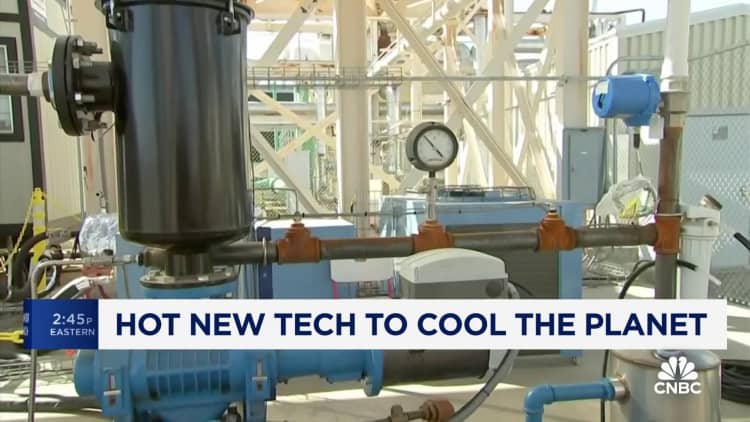[ad_1]

One of the newest and fastest growing weapons in the fight against global warming is technology to remove carbon dioxide from the atmosphere, known as direct air capture. Some liken it to sucking CO2 out of the atmosphere. However, it’s not a perfect science, and most methods require a lot of water. That is about to change, with new companies offering new strategies.
Direct air capture is already a growing business, and governments around the world are adding to it, providing tax incentives and grants to help spur the industry forward. Some of the first firms to do it, like Climeworks and Carbon Capture, use massive fans in the process.
One, California-based startup called Avnos is differentiating itself by creating, rather than using, water in the process.
“We produce as opposed to consume water,” said Will Kain, CEO of Avnos. “We don’t consume any heat, which is a major differentiator and allows us to be more cost-effective, more resource-efficient, and ultimately more scalable than other solutions in the space.”
Avnos invented what it calls ‘hybrid direct air capture,’ which uses a dehumidification technology to produce approximately five tons of water per ton of CO2 captured. Others consume about that much or more.
“We have the opportunity to turn a cost line item for other forms of direct air capture, in spending money on water, to a revenue line item, where we can generate revenue by selling the water that we produce directly from the air,” said Kain.
Like other direct air capture companies, Avnos is benefiting from both government tax credits and direct funding. Critics argue direct air capture in general is never going to remove enough carbon to make a dent in the 50 billion tons of CO2 emissions each year, but Kain argues this is just one tool in a decarbonization ecosystem that includes renewable energy like wind, solar and geothermal.
Both water and captured carbon can be used to make sustainable aviation fuel. That was particularly attractive to investor JetBlue Ventures, the venture capital arm of the airline, which invests in companies attempting to change the travel industry.
“It is not only more climate friendly, but it’s also a cheaper way to pull carbon from the air and actually produce a feedstock for the future for sustainable aviation fuel,” said Amy Burr, president of JetBlue Ventures.
In addition to JetBlue Ventures, Avnos is backed by shell ventures, the Grantham Foundation’s Neglected Climate Opportunities Fund and Rusheen Capital Management. Total funding from VC’s so far: $35 million.
[ad_2]

